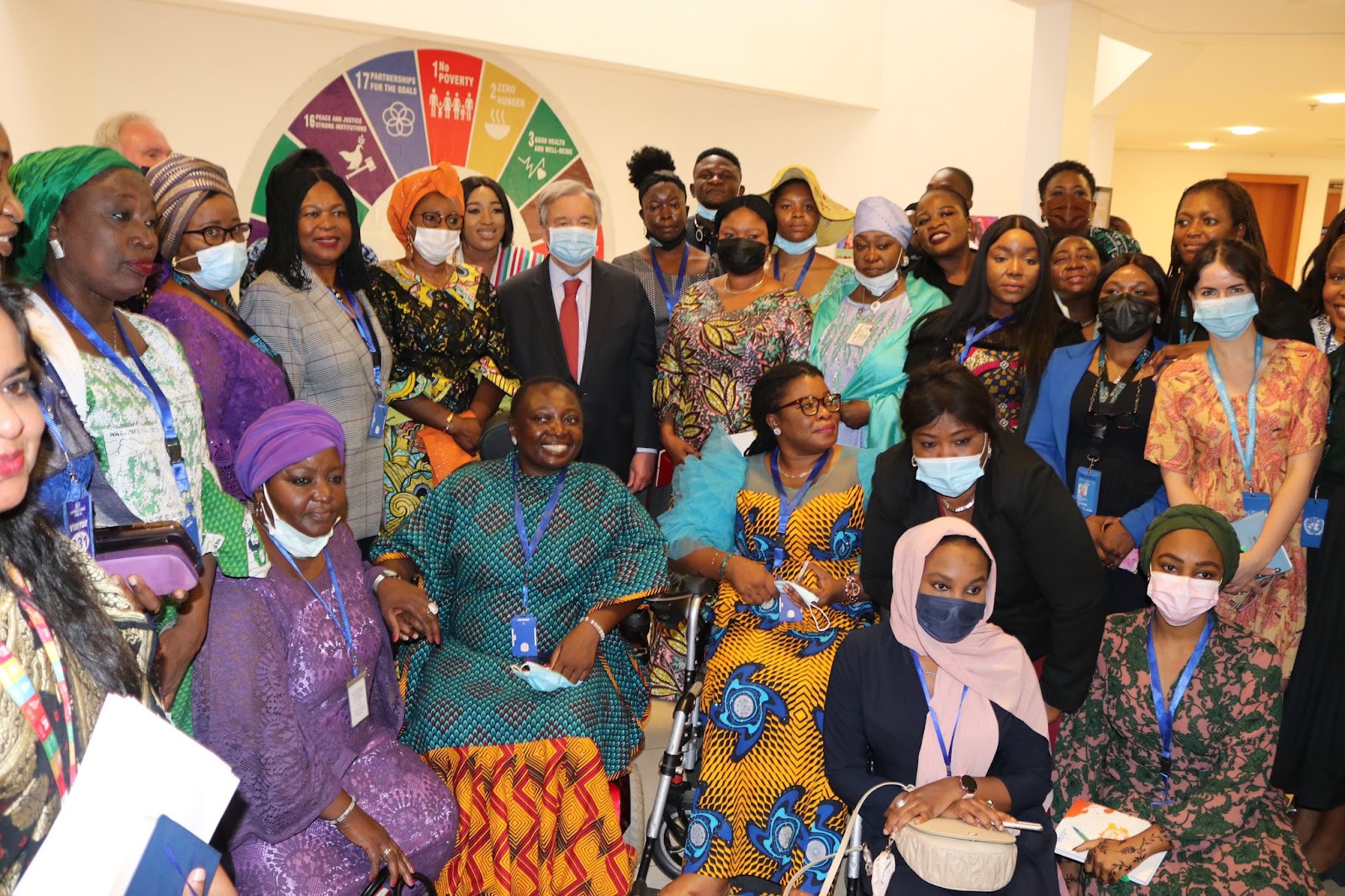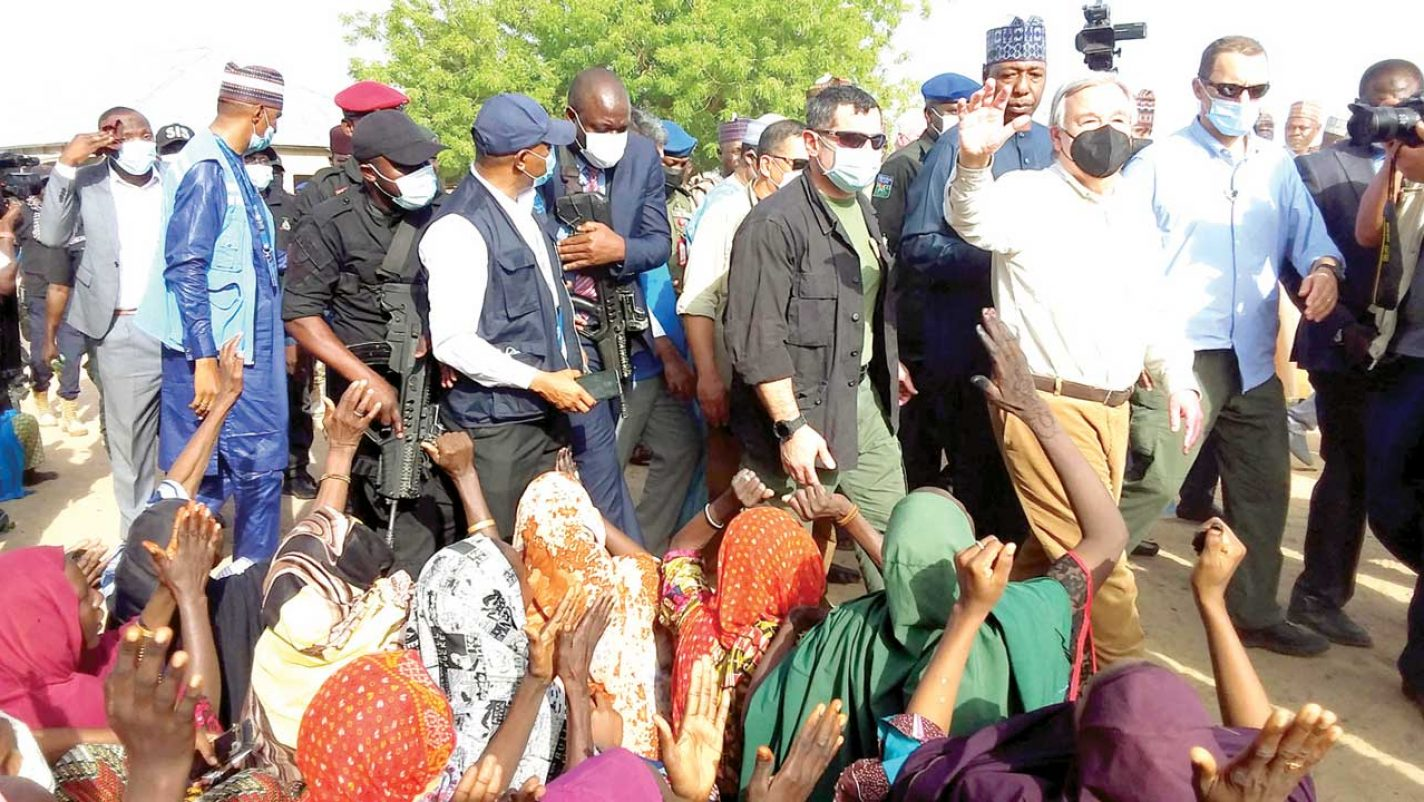The climate crisis and its impact in the Lake Chad region
Group photo with the UNSG
Photo credit: UN Women
I was one of the delegates that were invited to the meeting with the UNSG on women and girls; young people in climate action and decision making because women and girls bears the brunt of the climate crisis so we are left behind in things that matter to our future, it will affect the ability of solving the defining issues of our time. Likewise on Tuesday; 3rd May 2022, the United Nations Secretary General, Antonio Guterres visited Borno, one of the states in Nigeria that is the closest to Lake Chad; the epicenter of violent extremism and humanitarian crisis. During his visit, he mentioned that “the people affected by terrorism want above all to go back. The place to fight terrorism is to invest in livelihood reintegration and people future.” Climate change is a risk multiplier and these loopholes such as displacement and the loss of livelihood provides an enabling environment for young people to be recruited thereby expanding their boundaries. Since climate change is a risk multiplier; there is no one single approach in solving the crisis. That is why a solution such as resettlement of those displaced people is part of it and a welcome development. There is no solution that is too small to solve a crisis; every solution works together. While being resettled there is a need for long and lasting livelihood that will further strengthen their stability; so that they don’t get displaced after being displaced. This is what the climate crisis looks like when natural resources such as Lake Chad are at risk of drying up; it leads to poverty, hunger, food insecurity which are all indicators of social instability.
UNSG at Borno state, Nigeria
This year, Nigeria was ranked the 6th highest in the global terrorism index further stating that Sahel has become the new epicenter of terrorism; with Sub-Sahara Africa accounting for 48% of total global deaths terrorism. Yet terrorism undermines democracy. Hence, terrorism does not just occur on its own neither does climate change happened just like that, it must have been fuelled by multiple underlying issues that create rooms for such reoccurrences which can lead to a full time war if not properly solved. Perhaps, we have big environmental issues such as the shrinking Lake Chad that could not sustain the livelihood of people as it should thereby leading to conflict between the farmers, herdsmen, farmer-men and the host community on resource control. This call for a peace deal strengthens both livelihood options to further end armed group activities in the region and beyond. According to the UNSG, he said “if you fight terrorism just militarily, the terrorist will fight back but if you fight terrorism militarily and address the root causes of terrorism, then terrorism will have no other chance to persist.” Hence, we cannot solve the climate change induced crisis through more arms and ammunition. Rather, what we need is more climate action and not less. Therefore, there is hope if we can act on the realities of the crisis.
According to the Intergovernmental Panel on Climate Change, “human security will be progressively threatened as the climate changes because it undermines livelihoods, compromises culture and identity, induces migration that people would rather have avoided, and challenges the ability of states to provide the conditions necessary for human security.” Hence, we are mistaking military action for climate action as the solution to the insecurity we are faced with. We cannot solve the climate crisis through military action – there are more military actions than the climate action needed itself. We need not to normalise using climate action in place of military action because we can’t defeat climate induced insecurity through guns and ammunition. This is why the I Lead Climate Action Initiative will not keep quiet about things that matter to us; we will keep advocating for the restoration of Lake Chad to strengthen livelihoods and democracy.
By Oladosu Adenike (oladosuadenike32@gmail.com)






0 Comments
We are open to listening to your comment.